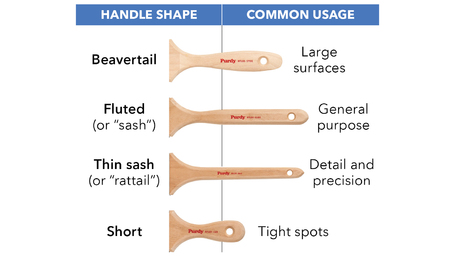So here is the scenario: I live in Old Orchard Beach, Maine, and am building a house for my family in town. When we went for the permit, we were told our lot was in a sfha, special flood hazard area, for those not in the know. After many calls and letters to fema, federal, and mema, Maine’s own emergency group, it felt like we were just spinning our wheels.
I kept in contact with my local code enforcer, and he got in touch with our town’s planner/civil engineer/etc. A few weeks later we were issued a permit.
Fast forward a month, and I get a letter from FEMA, saying that our lot is still in a flood zone. I brought the paperwork in to the town hall, and am wondering if they can pull the permit at this point. Our foundation is in the ground, cash out of pocket, and we are planning on getting a construction loan for the rest of the project. The problem with that is the bank will require flood insurance as part of loan terms, but because of the sfha classification, I don’t think we will be able to get flood insurance.
Anybody run into anything like this before?
Thanks,
Dustin



















Replies
Bump
Dustin: I was reading over my husband's shoulder and had to respond to your message. I was Senior Hydrologist for Pima County Flood Control District in Arizona for six years, so I am very familiar with your dilema. Your property is in an SFHA; it's going to stay that way unless something very unusual happens (like the town builds a levee, dam, flood wall etc.). You have a permit; people can and do get permits to build in flood zones, but that does NOT remove them from the flood zone. It just means you have to do certain things to make the house better protected from a flood. (I suspect this is where the engineer came into the picture). In Arizona, this means elevating the house. Here's the thing to remember: whether or not you elevate the house, flood insurance is available to you as long as Old Orchard Beach is a "participating community" (with the NFIP) which I suspect it must be. IF you elevate the house, flood insurance is cheaper; the more you elevate, the cheaper it gets (at least in Arizona). An unelevated house in an SFHA can get flood insurance, but it will run in the thousands $$ per year. So make sure your foundation is good and high, conforms with the community regs, and good luck. Let me know if I can clarify anything more.
Jean
Many homes exist in flood planes. When someone buys one of these homes their mortgage company will simply require flood insurance. I'm with State Farm Insurance and I live in a 3 bedroom home worth about $90 K. My homeowner's insurance premium is about $650 per year. I don't have flood insurance.If I wanted or needed to purchase flood insurance through State Farm Insurance on my home it would cost me about the same as my current premium $650 per year.As a realtor I have a telephone number I can call in my community and I can simply give them the property address and they will tell me if the home is located in a flood zone.In real estate home sales many buyers seem to "steer away" from homes in which flood insurance is required. When selling a home in a flood zone, some sellers have resorted to offering to pay one or two years premium as a "sweetner" to the deal to get someone to buy the home.Just my two cents.
Basically, you have a whole book to study, or you need to hire an engineer familiar with the book. Things like having the finished ground =floor a minimum of one foot above the max hundred year flood elevation, special hardware tiedowns to keep it from floating away and drifting into th eneighbor's house or boat, keeping utilities properly positioned and tied down, shear wall bracing, etc. Sometimes foundations have to be designed to be clear, as on piers so that a wave can flow through instead of meeting resistance whichj it would overcome. Starting place is your town's Flood plain ordinance. They are required to have one before FEMA will issue flood insurance for anytone in town, and it has to follow their guidlines.
up here, the way we got around having to enforce all the minute detaails of that guidline, out floodplain ordinance simply states that no structures are permitted to be built in identified flood zones, period.
Welcome to the
Taunton University of Knowledge FHB Campus at Breaktime.
where ...
Excellence is its own reward!
Idowney's post is similar to what I would have posted, but it seems she missed:
"Our foundation is in the ground"
Her observations about elevation are similar to what we have here in Texas. Homes in flood zones require specified finish floor elevations for the best deals in flood insurance. Sometimes this can mean raising the finish floor elevation 3+ feet. You need to find what elevtion is required and check it against your foundation, related to the required finish floor elevation.
You may have another problem, related to your procedure.
Our foundation is in the ground, cash out of pocket, and we are planning on getting a construction loan for the rest of the project.
Work is in progress and the "foundation is in the ground". This may cause delays in your construction loan funding. When progress has taken place, in Texas, our banks have a right to delay funding becasue they want to make sure all bills have been paid, and there are no liens against the house. A Builder response " Well, all the bills have been paid!" , but the bank wants to make legally sure.
In two past cases, we had problems, one before we knew of potential delays caused by starts prior to construction loan closing, and the other at the insistance of a homeowner we had warned after the first experience. He sadi he had it all worked out, and the bank was his friend. Both wanted us to start with their own cash prior to construction loand closing. We installed the foundation, and the HO went to the bank. In both cases, the banks delayed funding, the first for 6 months and the other for 3 months. The banks were waiting out the effective lien process to see if anything came up in the legal system.
Some of the banks we work with require a picture of the site showing that no progress has been made. The banks will not allow a material drop, site prep or batter boards, etc.
Thanks for the responses, everyone. As soon as I correspond further with the town, I'll let you know what the word is.
Thanks again,
Dustin